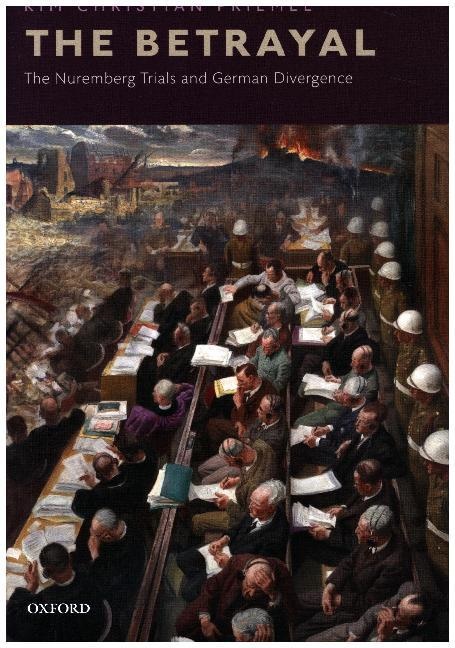Read more
Zusatztext Priemel's research in the American, French, and British government files and in the papers of judges, prosecutors, and defense attorneys expands our understanding of the debates that took place among the Allied prosecution teams. Informationen zum Autor Hailing from the north of Germany, Kim Christian Priemel studied modern history, public law, and English literature at the Universities of Freiburg and St Andrews. He graduated in 2002 and earned his PhD from Freiburg University in 2007 with a dissertation in business history. After a brief stint at the Munich-based Institute of Contemporary History he joined Viadrina University Frankfurt as an assistant professor in social and economic history. From 2009 to 2016 Priemel was an assistant professor and, from 2013, a Dilthey Fellow of the Fritz Thyssen Foundation at Humboldt University Berlin which he left upon completing his Habilitation with a study of the Nuremberg war crimes trials. He has held research fellowships at the German Historical Institute London, Wolfson College Cambridge, and the Center for European Studies at Harvard University. Klappentext Examines how the Allies came to terms with how a 'civilised' nation like Germany could perpetrate the crimes of WWII and sought to bring them back to the Western fold. Priemel shows that while many German institutions, which were ostensibly similar to their Allied counterparts, had been corrupted even before Hitler's rise to power. Zusammenfassung Examines how the Allies came to terms with how a 'civilised' nation like Germany could perpetrate the crimes of WWII and sought to bring them back to the Western fold. Priemel shows that while many German institutions, which were ostensibly similar to their Allied counterparts, had been corrupted even before Hitler's rise to power.
List of contents
- 1: Introduction: Drawing Lines
- 2: Mapping the West: Nuremberg's Textbooks
- 3: Constructing Nuremberg
- 4: The Lunatic Fringe, Mostly
- 5: Paving the Sonderweg
- 6: Saving Capitalism
- 7: Trying Modernity or La trahison des clercs
- 8: East by South-East: The Military Cases
- 9: Reintegrating the Other
- 10: After Nuremberg
Report
Kim Priemel's The Betrayal might be the most important book written on the Nuremberg trials despite the massive library on the subject. Norman J. W. Goda, University of Florida, Journal of Modern History

